An ophthalmologist (eye doctor) is a doctor who specializes in the diagnosis, treatment, and prevention of eye disease. It is difficult to overestimate the severity of vision problems – a large part of the surrounding world ceases to exist for a person. Treating and preventing private and total loss of vision is what an ophthalmologist does.

Subsections of ophthalmology
Pediatric ophthalmology is a subsection of ophthalmology that investigates the characteristics of children’s vision. A child’s vision, unlike that of an adult, is constantly changing. Pediatric ophthalmology is designed to study the peculiarities of these changes and related pathologies.
What organs do ophthalmologists treat
- The eyeball;
- eyelids;
- lacrimal organs;
- conjunctiva;
- orbit.
What diseases are treated by an ophthalmologist
- nearsightedness is a visual defect in which the image is focused in front of the retina and the person cannot see distant objects clearly;
- farsightedness is a visual defect in which the image is focused behind the retina and a person cannot see objects clearly at close range;
- conjunctivitis – inflammation of the mucous membrane of the eye (conjunctiva);
- cataract – clouding of the lens of the eye;
- glaucoma – increased eye pressure that causes visual impairment;
- astigmatism – a disturbance in the shape of the lens or cornea.
What else does an ophthalmologist treat?
A large part of what an ophthalmologist treats are vision abnormalities that are triggered by other diseases or critical situations for the body. Visual impairment can be caused by:
- hypertension;
- abnormal pregnancy;
- severe childbirth;
- atherosclerosis;
- renal pathologies;
- diabetes mellitus;
- traumatic eye injuries.
How is the examination by an ophthalmologist?
At the initial reception, the ophthalmologist:
- Gathers anamnesis (medical history), asks the patient about possible complaints.
- Conducts examination and palpation of the eyes, examination of the eyes with a biomicroscope (slit lamp).
- Depending on complaints and examination results, the doctor may prescribe additional tests: ophthalmoscopy (visual examination of the eye fundus), tonometry (measuring intraocular pressure), and biomicroscopy (examination of the eye under multiple magnification).
Fresh articles
- Eye Drops for Photophobia

- Visual Acuity
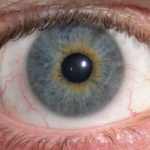
- Aphakia: Symptoms, Diagnosis, and Modern Treatment
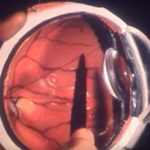
- Ocular Migraine: Causes, Symptoms, Treatment and Used Medication
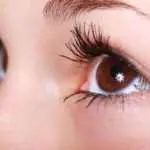
- What to Do When Your Child’s Eyes Look Swollen or Puffy

- Pain Above Left Eye

- Normal Intraocular Pressure

- Polycoria: When One Eye Has More Than One Pupil

- Exotropia (Wall-Eyes): Symptoms and Treatment Guide

- Best OTC Eye Drops for Infection, Allergy, Dry or Pink Eyes and Other Disorders
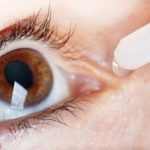
- OU Medical Abbreviation — Definition & Use in Ophthalmology

- Glaucoma Management Update 2025: Integrating AI, MIGS, and Neuroprotection in Modern Ophthalmology

- Sclerite (Severe Eye Pain & Redness): Causes, Symptoms, Diagnosis, and Treatment Options

- VIZZ Eye Drops: A Breakthrough FDA-Approved Treatment for Presbyopia in Adults

- Broken Blood Vessels in Eyes (Subconjunctival Hemorrhage): Causes, Risks, and Treatment

- Headaches and Blurred Vision: What Your Body Might Be Telling You

- Causes of Seeing Squiggly or Jagged Lines in Your Vision

- Phlyctenulosis Symptoms, Causes, and Eye Treatment Guide

- CMV Retinitis: How It Threatens Your Vision

- Can Dry Eyes Cause Blurry Vision Problems?

- Why Is Your Vision Blurry Each Morning?

- Corneal Neovascularization
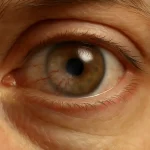
- Everyday Eye Care Tips for Better Vision

- Putting Cucumbers on Eyes: Trend or Treatment?

- How and Why Myopia Progresses Over Time

- Tunnel Vision: Managing Loss of Peripheral Sight

- Ocular Myasthenia Gravis: A Closer Look at a Puzzling Eye Disorder

- Age-Related Eye Deterioration: Causes, Symptoms, and Solutions

- Top Reasons to Choose GP Lenses
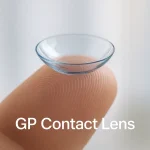
- Optic Neuritis Symptoms, Causes, and Treatment Explained
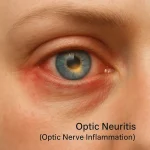
Question & Answers
- Optometrist Salary
- Visual Acuity
- Normal Intraocular Pressure
- OU Medical Abbreviation — Definition & Use in Ophthalmology
- Headaches and Blurred Vision: What Your Body Might Be Telling You
- How to Properly Insert Different Types of Contact Lenses
- Can Dry Eyes Cause Blurry Vision Problems?
- Putting Cucumbers on Eyes: Trend or Treatment?
- Ocular Migraines: Questions and Answers
- What Happens If You Wear Expired Contacts? Eye Health Explained
- What Are the Best Contact Lenses?
- Glaucoma and Eye Pressure: Common Questions
- Are Contacts Bad For Your Eyes?
- How Old Do You Need to Be for LASIK?
- Manuka Honey for Dry Eyes: A Natural Solution Worth Considering?
- Can You Take a Shower With Contacts?
- Reading on Paper vs. Screens: A Scientific Perspective
- Red Dots Around the Eyes
- How to Get Rid of Ocular Migraines
- Normal Refraction and Refractive Errors
- Foods That Cause Ocular Migraines: What You Should Know
- How to Clean Gas Permeable Contact Lenses: A Comprehensive Guide
- How to Find the Best LASIK Eye Surgery Doctor
- Essential Oils for Eye Infection: Are They Safe and Effective?
- Why Is LASIK Surgery So Expensive?
- How to Get Rid of Mucus in Your Eyes
- How to Effectively Make a Warm Compress for Your Eye
- Computer Vision Syndrome: How Our Screens Are Affecting Us More Than We Think
- How Safe Is LASIK? What the Data Really Tells Us
- How Does Astigmatism Affect Your Vision?